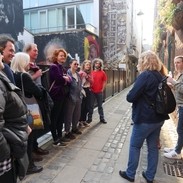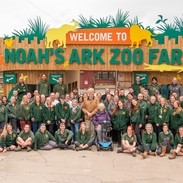Better Business case study: Berwick Lodge
Photo by: VisitBritain/Diensen Pamben

Better Business case study: Berwick Lodge
Berwick Lodge, a 14-room luxury boutique hotel near Bristol, has been on a transformative journey towards sustainability.
Fast forward four years and owners Sarah and Fevzi Arikan have built sustainability seamlessly into the hotel’s operations. Developing partnerships and asking for advice has really paid dividends, with the whole staff team engaged in their sustainability initiatives and looking ahead to tackling the next steps together.
“At the beginning, sustainability was really daunting, there were words like net zero…it felt like such a big thing. I didn’t know how I was ever going to do it.”
Sarah Arikan, co-owner
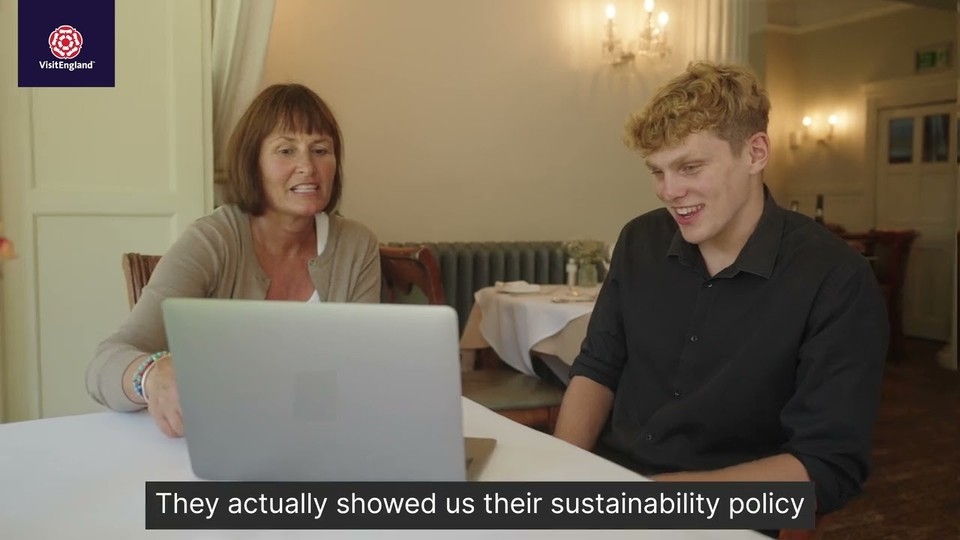
You must accept "Targeting" cookies from in order to watch this video, as YouTube automatically sets cookies of this type.
One of the first things Sarah and Fevzi did was to invest in a part-time sustainability adviser role. Emily took up the reins in early 2022 and together she and Sarah have wasted no time in working with the wider staff team to implement positive changes. They began by mapping out all the positive things the business was already doing – which they were pleasantly surprised to find amounted to more than they’d realised! They then set about identifying other businesses that they admired for their sustainability approach and got in touch to ask for advice, gaining valuable information and knowledge from hotels such as the Treehouse and Room 2 in London, which they applied to their own business.
“We learned masses, because they are much further down their journey than we are.”
Sarah Arikan, co-owner
Photo by: VisitBritain/Diensen Pamben
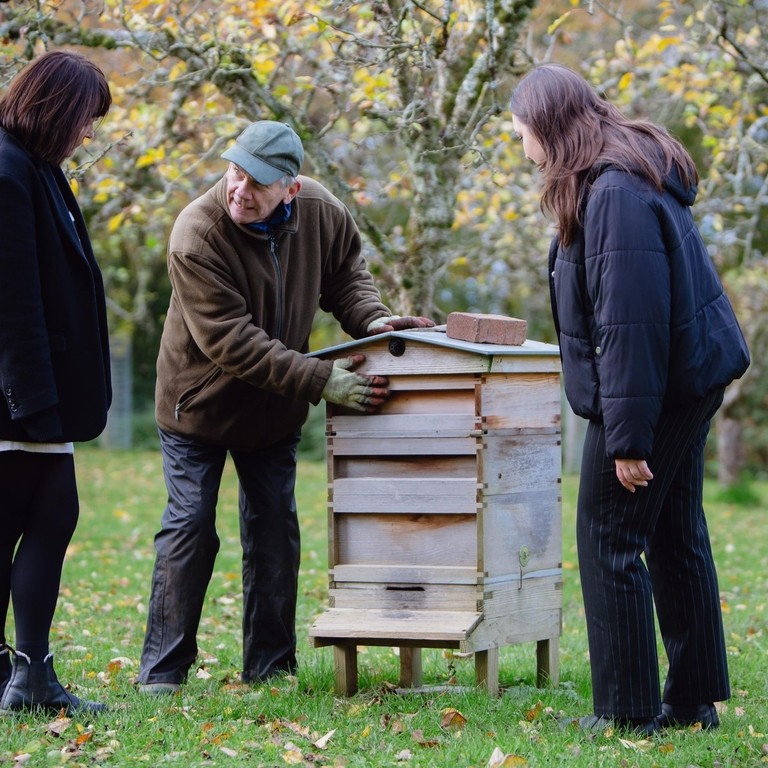
The hotel also partnered with local organisations: the University of the West of England provided advice and training, and the West of England Combined Authority offered a carbon survey highlighting key areas of carbon output and areas for improvement (including approximate cost and carbon savings). Working towards accreditation also provided goals to aim for.
Their proactive approach has helped them achieve a great deal since those early days, and feel more confident in taking the next steps. Energy saving initiatives have included installing energy-efficient washing machines and LED lights across the hotel and automatic shut-down on IT equipment. Their biggest investment has been the installation of 68 solar panels, which were boosted with grant funding and which now power EV charging points at the hotel entrance for use by guests and staff, including the company electric car.
The Energy-Deck system is used to continually monitor and set targets to cut energy consumption and minimise waste to landfill. They’ve increased on-site recycling facilities, purchase crockery for their afternoon tea service from local charity shops and cooking oil is recycled for biodiesel. Water is also saved through flow restrictors in taps and toilets.
These initiatives have provided significant cost savings. In particular the solar panels (installed with 35% grant funding) have already saved them up to £800 a month on energy bills, as well as smaller savings that add up –such as replacing the small single-use soap and shampoo bottles with large, locally produced bottles – and encouraging guests to opt for water-saving activities such as not washing towels daily.
The team of approximately 50 staff is fully on board the journey, helped by being updated weekly and invited to make their own suggestions for sustainability initiatives, which they do enthusiastically. A couple have even been inspired to buy their own electric cars, charged at work! Staff wellbeing is a top priority, with a free mental health support programme and access to a mindfulness garden on offer.
“The benefits of sustainability for our business have been huge…it’s helped us retain our staff…and our customers like the fact that we’re caring about our people, our staff and the environment.”
Sarah Arikan, co-owner
Photo by: VisitBritain/Diensen Pamben
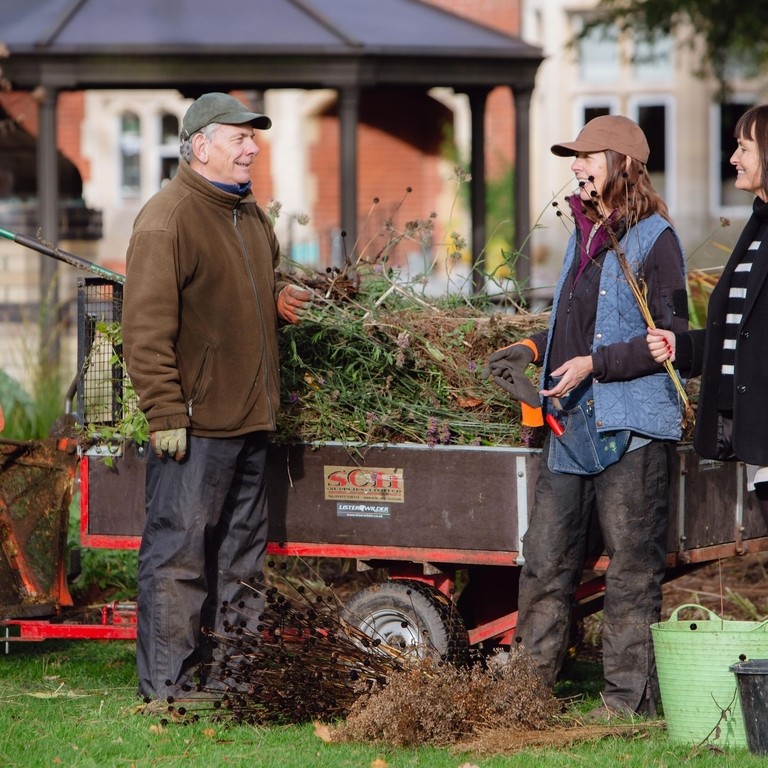
Taking your next steps: Grants and support
The availability of grants and funding support, and the items covered, will vary over time. Local Visitor Economy Partnerships (LVEPs) may also be able to advise on or signpost particular funding sources available.
The VisitEngland Business Advice Hub also includes advice on funding available for tourism businesses.
At national level, the following schemes are also relevant for tourism businesses wanting to improve their sustainability performance:
Premises:
The Boiler Upgrade Scheme (until 2025) provides upfront capital grants to support installation of heat pumps and biomass boilers in homes and non-domestic buildings in England and Wales. Applicants can get up to £7,500 off the cost and installation of an air or ground source heat pump, and up to £5,000 off the cost and installation of a biomass boiler.
Electric vehicle charging:
Through the Workplace Charging Scheme (until March 2025):
Businesses, charities and the wider public sector can get grants of up to £350 per socket for installing up to 40 charging sockets for their employees and fleets
Small and medium sized enterprises and public sector organisations can apply for charge-point grants, and infrastructure grants of up to £15,000 to provision staff and fleet car parks
Charities and small accommodation businesses including B&Bs, camp and caravan sites and small hotels are also able to apply for support through the Workplace Charging Schemes, and can make their charge-points available for customer and visitor use as well as staff. This will help to accelerate EV uptake in rural areas and support the UK tourist and hospitality industry.
For rural businesses:
The Rural England Prosperity Fund supports activities that specifically address particular challenges rural areas face, with funding available to businesses until March 2025.
General grant funding information is also available at https://www.grantsonline.org.uk/
Inspired by what you’ve seen? Check out the Regenerative Tourism Guide to learn more ways to stand out from the crowd, inspire staff, enhance visitor loyalty and make your business a force for good.
Previous case study
Next case study

